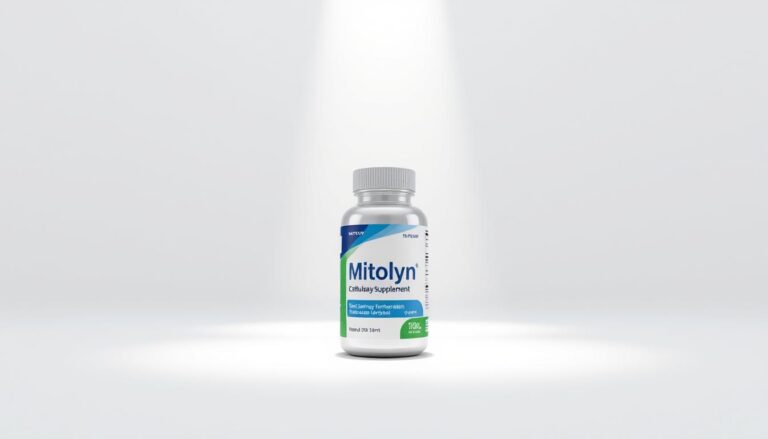Coffee and Weight Loss: How to Shed Pounds with Your Morning Brew
Table of Contents
Imagine turning your daily coffee into a tool for weight loss. New research from Denmark shows that your morning coffee could be key to losing weight. It’s not just a hope anymore; it’s backed by science.
Caffeine is key in how your body burns calories and fat. Studies show that drinking coffee every day can help you lose weight. Your morning coffee might do more than just wake you up.
New studies show coffee’s power goes beyond just waking you up. It can boost your metabolism and help burn fat. Your coffee could be a surprising help in managing your weight.
Key Takeaways
- Coffee can potentially support weight loss through caffeine metabolism
- Daily coffee consumption may help burn additional calories
- Specific brewing methods can enhance coffee’s weight loss properties
- Caffeine impacts metabolism and fat oxidation
- Research suggests coffee might reduce body fat percentage
To maintain your body’s fitness and get rid of excess fat, you need this wonderful nutritional supplement
The Science Behind Coffee and Weight Loss
Coffee is more than a morning boost. It’s a powerful drink that can change your metabolism and help with weight loss. The mix of caffeine and your body creates a fascinating way to burn energy and fat.
Let’s see how your daily coffee can help with weight management. It does this through its special metabolic effects.
Understanding Caffeine’s Role in Metabolism
Caffeine boosts your metabolism. When you drink coffee, it starts several important changes in your body:
- Stimulates the central nervous system
- Increases resting metabolic rate
- Boosts energy expenditure
- Activates fat-burning mechanisms
How Coffee Affects Fat Oxidation
Fat oxidation is key for weight control. Coffee speeds up this process by releasing fatty acids from fat tissues. Studies show caffeine can increase fat burning by 10-29% during exercise.
The Thermogenic Properties of Coffee
Thermogenesis is your body’s heat production, which burns calories. Coffee boosts thermogenesis, helping you burn calories even when resting. Research finds caffeine can raise metabolic rate by 3-11%, making it a natural weight loss aid.
Remember, the key is moderation and understanding how coffee interacts with your unique metabolism.
Cafestol: The Hidden Weight Loss Compound in Coffee
Coffee lovers, get ready for a game-changer. Cafestol, a hidden gem in your coffee, could change how you think about weight loss. It’s a molecule that might boost fat burning and improve metabolic health.
Danish researchers have found something special about cafestol. It’s different from caffeine and works in its own way to help with weight loss. It affects how your body burns fat at a cellular level.
- Targets fat metabolism directly
- Supports natural weight management
- Works independently of caffeine’s stimulant effects
Studies show that drinking cafestol daily might boost your body’s fat-burning power. It seems to speed up fat oxidation and aid in weight loss.
Here’s what makes cafestol special:
- Lipid metabolism regulation
- Potential reduction in body fat storage
- Natural metabolic support
While more research is needed, the early results are promising. Cafestol is most found in unfiltered coffee, like Turkish or French press.
Cafestol represents a promising frontier in understanding coffee’s metabolic benefits beyond traditional caffeine research.
Best Brewing Methods to Maximize Fat-Burning Benefits
Your morning coffee can do more than wake you up. Choosing the right brewing method can help you lose weight. It boosts your energy and supports your fasting goals.
Each brewing technique changes your coffee’s health benefits. The method you choose affects caffeine levels, antioxidants, and how it helps your metabolism.
Unfiltered vs. Filtered Coffee Comparison
The way you brew your coffee greatly impacts its health benefits. Unfiltered coffee has more cafestol, which can improve your metabolism.
| Brewing Method | Caffeine Content | Fat Loss Potential |
|---|---|---|
| Unfiltered (Turkish/Boiled) | 130 mg per 200 mL | High |
| Filtered (Drip) | 70 mg per 200 mL | Moderate |
| Espresso | 100 mg per shot | High |
Turkish and Espresso Preparation Techniques
Turkish and espresso brewing methods pack more benefits. Light roast varieties have the most antioxidants. They can raise your metabolic rate by 3-11%.
- Turkish coffee: Unfiltered, rich in antioxidants
- Espresso: Concentrated caffeine, quick metabolism boost
- Recommended: 3 cups daily for optimal results
Timing Your Coffee Consumption
Drinking coffee at the right time can boost your fasting and energy use. Having coffee 30 minutes before working out can help burn fat and improve endurance.
Pro tip: Black coffee with minimal calories offers the most effective weight loss support.
Supercharging Your Morning Brew for Weight Loss

Turn your morning coffee into a weight loss powerhouse. Bulletproof coffee is more than a trend. It’s backed by science to boost your metabolism and keep calories low.
Adding certain ingredients can make your coffee even better for losing weight:
- Coconut Oil: It has MCTs that speed up your metabolism
- Collagen Peptides: They help your metabolism and give you protein
- Ceylon Cinnamon: It cuts down inflammation and boosts fat burning
Studies show coffee can really help with weight loss. Caffeine can make your metabolism go up by 3-11%. Chlorogenic acids might also help burn more calories by up to 10%. With the right ingredients, your coffee can become a key tool for managing weight.
| Ingredient | Metabolic Benefit | Recommended Quantity |
|---|---|---|
| Coconut Oil | Increases fat oxidation | 1/2 tablespoon |
| Collagen Peptides | Supports metabolism | 1 1/2 tablespoons |
| Ceylon Cinnamon | Reduces inflammation | 1/4 teaspoon |
When making your bulletproof coffee, remember it’s part of a bigger weight loss plan. The secret is to keep a steady calorie deficit while using coffee’s natural boosters.
Pro Tip: Drink your enhanced coffee before meals to possibly cut daily calorie intake by up to 300 calories.
How Coffee Suppresses Appetite and Reduces Cravings
Coffee is more than a morning boost. It’s a powerful tool for controlling hunger and keeping calorie intake low. Its unique effects on hunger hormones and metabolism help with weight management.
Your morning coffee does more than wake you up. It has fascinating effects on appetite and weight loss.
Impact on Hunger Hormones
Coffee triggers a complex hormonal response that can greatly reduce hunger. Key findings show:
- 100 milligrams of caffeine can boost metabolic rate by 3-4%
- Drinking black coffee within seven seconds of feeling hungry stimulates dopamine and adrenaline
- Decaf coffee increases the satiety hormone PYY, helping you feel full
Blood Sugar Regulation Benefits
Coffee contains chlorogenic acids that are key for blood sugar management. These compounds slow down carbohydrate absorption. This helps stabilize insulin levels and control appetite.
“Coffee isn’t just a beverage, it’s a metabolic ally in your weight loss journey.” – Nutrition Expert
Emotional Eating Prevention
Your coffee can fight emotional eating. It boosts energy and improves mood, leading to better food choices. A four-year study found that black coffee was linked to weight loss. But adding sugar or creamer led to weight gain.
Remember, drink in moderation. The FDA suggests no more than 400 milligrams of caffeine daily. That’s about four eight-ounce cups of coffee.
Protein-Packed Coffee Recipes for Weight Management

Turn your morning coffee into a tool for weight management with protein-packed recipes. These recipes boost your energy and help you reach your calorie deficit goals. Protein coffee, or “proffee,” is a game-changer for fitness lovers wanting to improve their morning routine.
Here’s a simple yet tasty protein coffee recipe to kickstart your metabolism:
- 2 ounces espresso (double shot)
- 3/4 cup protein shake
- 1-2 cups ice
- Optional: 1/2 teaspoon vanilla
- Optional: 1 teaspoon raw sugar
This protein coffee is packed with nutrients. Each serving has about 23 grams of protein and only 125 calories. It’s perfect for those watching their calorie intake. It has just 4 grams of carbs and 1 gram of fat, great for weight management.
“Protein coffee is not just a drink, it’s a strategic approach to nutrition and weight loss.”
Making this protein coffee is quick, taking only 5 minutes. You can keep it in the fridge for 2-3 hours. For longer storage, freeze it in ice cube trays to blend later.
| Nutrient | Amount per Serving |
|---|---|
| Protein | 23g |
| Calories | 125 kcal |
| Carbohydrates | 4g |
| Fat | 1g |
Adding protein coffee to your diet does more than just taste good. It helps with weight loss by keeping you full, boosting your metabolism, and supporting a healthy calorie deficit.
The Connection Between Coffee and Metabolic Health
Your morning coffee does more than just wake you up. It plays a fascinating role in supporting your metabolic health. Caffeine metabolism and thermogenesis are key mechanisms that make coffee a potential ally in your weight management journey.
Research reveals compelling insights into how coffee impacts your body’s metabolic processes. The antioxidant-rich beverage can trigger significant changes in your metabolism. This can help you manage weight more effectively.
Effects on Visceral Fat Reduction
Targeting visceral fat—the dangerous fat surrounding your organs—coffee might be more powerful than you think. Studies have highlighted some impressive findings:
- Overweight individuals consuming four cups of coffee daily lost approximately 3.7% of body fat
- Caffeine can increase metabolic rate, burning an additional 80-150 calories per day
- People with lower BMI may experience larger metabolic rate increases
Antioxidant Properties and Weight Loss
Coffee’s antioxidant profile goes beyond simple fat burning. These compounds support overall metabolic health through various mechanisms:
| Antioxidant Benefit | Metabolic Impact |
|---|---|
| Reduced Inflammation | Supports metabolic efficiency |
| Improved Insulin Sensitivity | Helps regulate blood sugar |
| Enhanced Cellular Protection | Supports long-term metabolic health |
“Coffee isn’t just a beverage—it’s a complex metabolic enhancer with potential health benefits.”
Remember, moderation is key. The FDA recommends consuming 200-400 milligrams of caffeine daily. This is roughly two to four cups of coffee. It maximizes potential metabolic benefits without adverse effects.
Common Mistakes to Avoid When Using Coffee for Weight Loss

Using coffee for weight loss needs a smart plan. Many people unknowingly ruin their calorie deficit by making big mistakes with their coffee.
What you put in your coffee matters a lot for weight control. A simple cup of coffee has almost no calories. But, adding things like sugar or cream can quickly add a lot of calories. Knowing these traps is key to keeping your appetite in check.
- Avoid high-calorie coffee additives like flavored syrups and whipped cream
- Limit sweeteners that can disrupt your metabolic goals
- Monitor portion sizes and additional ingredients
Calorie creep is common with coffee drinks. Here are some weight loss traps to watch out for:
| Coffee Addition | Calories |
|---|---|
| 1 teaspoon sugar | 16 calories |
| Flavored syrup (per pump) | 10-20 calories |
| Whipped cream (2 tablespoons) | 73 calories |
| Heavy whipping cream (2 tablespoons) | 101 calories |
Some people count too much on coffee to control their appetite without eating well. Remember, coffee is a tool, not a complete weight loss solution. Use coffee wisely, along with exercise and healthy food, for the best results.
Another big mistake is messing with your sleep. Drinking coffee too late can mess with your sleep, raising stress hormones that work against weight loss. Try to stick to caffeine in the morning and early afternoon.
“Your coffee can support weight loss when consumed mindfully and strategically.”
By knowing these common mistakes, you can turn your coffee into a helpful tool for reaching your fitness goals.
Integrating Coffee into a Comprehensive Weight Loss Plan
Creating a good weight loss plan is more than just drinking coffee. It’s about combining different elements for the best results. Coffee can help a lot when used wisely with other healthy habits.
Intermittent fasting is a great way to use coffee’s benefits. Drinking coffee during fasting times can help you burn more energy and feel less hungry. Studies show that caffeine can reduce hunger and speed up metabolism when you’re not eating.
- Drink black coffee during fasting to cut down on calories
- Stay away from sugar and cream to keep calories low
- Stick to 1-2 cups of coffee a day for your health
Using coffee smartly can help with weight loss. Here are some tips:
- Drink coffee 30-60 minutes before working out to burn more fat
- Choose black coffee to keep calories low
- Watch your total caffeine intake (max 400mg a day)
“Coffee is not a magic solution, but a supportive tool in your weight management toolkit.”
Coffee is most effective when part of a healthy diet, regular exercise, and good habits. While it can help with burning energy, it’s not enough on its own.
Pay attention to how your body reacts to coffee. Adjust your intake based on your health and how you feel. Talk to doctors to make a plan that includes coffee well.
Conclusion
Coffee and weight loss can work well together if you plan it right. Caffeine boosts your metabolism, helping you burn more calories. Your morning coffee can be a big help in managing your weight.
It’s important to know how coffee helps with weight loss. It can help you burn fat and feel full. But, remember, coffee alone won’t do the trick. You need to eat well and exercise too.
Drinking coffee wisely is key. Stick to 2-3 cups a day, and choose black coffee or low-calorie options. Try different ways of making coffee to get the most benefits. Adding coffee to your routine can help you reach your weight goals.
Your weight loss journey is special to you. Coffee can help keep you energized and full. Stay on track, listen to your body, and see how coffee can help you reach your health goals.
FAQ
Can coffee really help me lose weight?
Yes, coffee can aid in weight loss. It boosts metabolism, increases fat burning, and can reduce hunger. But, it’s important to eat well and exercise regularly for the best results.
How does caffeine contribute to weight loss?
Caffeine makes your body burn more calories and boosts your metabolism. It also gives you energy, which can help you work out better.
What is cafestol, and how does it affect weight loss?
Cafestol is a coffee compound that may help with metabolism and fat burning. It works differently than caffeine, affecting metabolism at a cellular level. This could help reduce body fat and improve metabolic health.
Which coffee brewing method is best for weight loss?
Filtered coffee is best for weight loss because it removes cafestol. Espresso and Turkish coffee are more concentrated, but drink them in moderation. Choose your brewing method wisely for better weight loss benefits.
Can I add anything to my coffee to enhance weight loss?
Yes, adding cinnamon, coconut oil, or protein can enhance your coffee’s weight loss benefits. Bulletproof coffee, with healthy fats, can also help control hunger. Just remember to watch your calorie intake.
How does coffee suppress appetite?
Coffee can control hunger by affecting hormones like ghrelin and leptin. It also helps keep blood sugar stable, reducing sudden hunger and emotional eating. But, effects can vary from person to person.
Are there any risks associated with using coffee for weight loss?
While coffee can aid in weight loss, too much can cause jitters, sleep issues, and anxiety. Drink coffee in moderation and listen to how your body reacts.
How does coffee impact metabolic health?
Coffee has antioxidants and compounds that can improve metabolic function. Regularly drinking it may reduce belly fat, improve insulin sensitivity, and enhance metabolic efficiency when combined with a healthy lifestyle.
Can I rely solely on coffee for weight loss?
No, coffee is a helpful tool, not a magic solution for weight loss. You need to eat fewer calories, eat well, exercise regularly, and manage weight holistically.
How does intermittent fasting relate to coffee and weight loss?
Coffee is great with intermittent fasting, helping to reduce hunger and boost metabolism. Black coffee has almost no calories and keeps energy up while burning fat during fasting.







